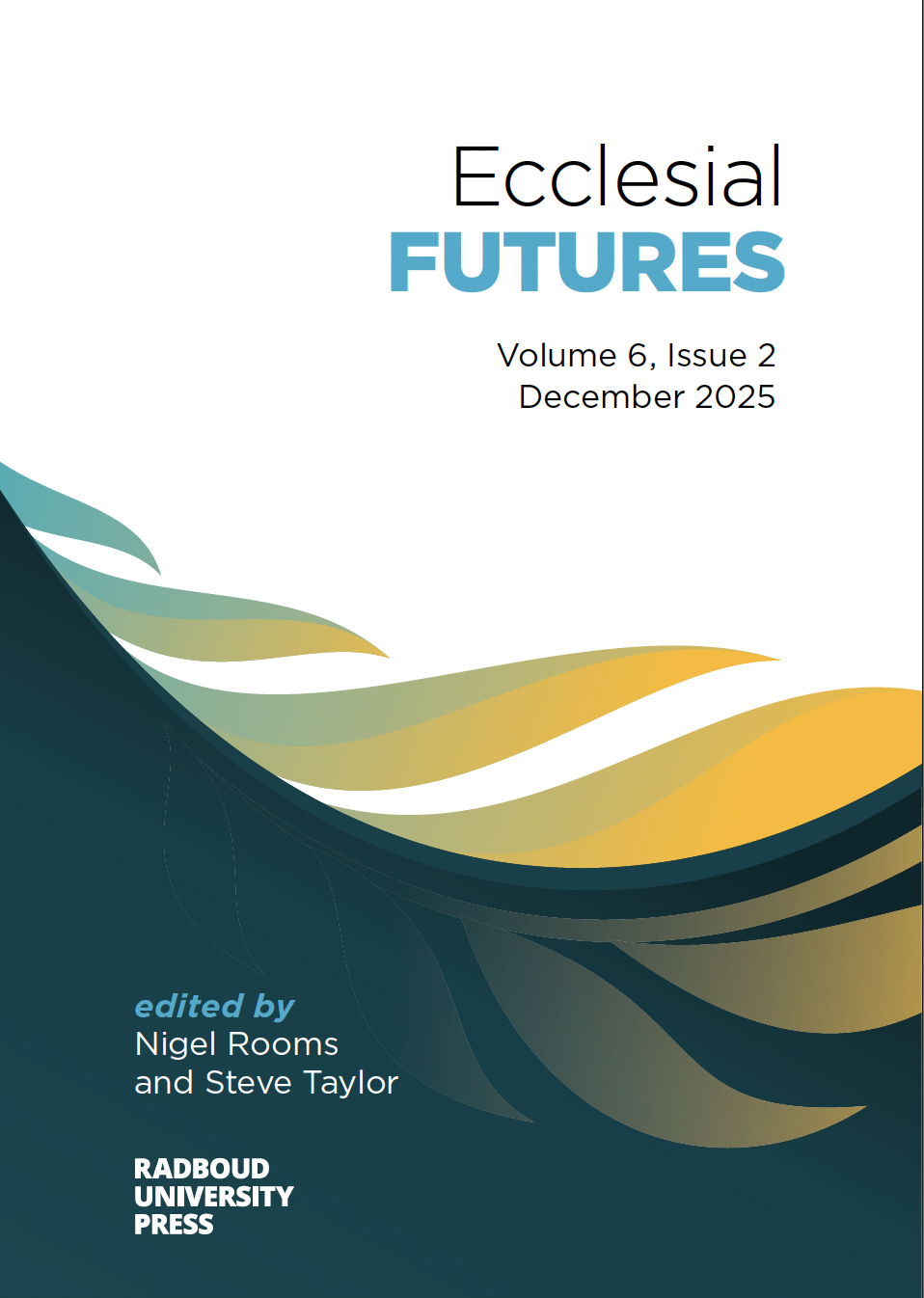About the Journal
Ecclesial Futures publishes original research and theological reflection on the development and transformation of local Christian communities and the systems that support them as they join in the mission of God in the world. We are an international and ecumenical journal with an inter-disciplinary understanding of our approach to theological research and reflection; the core disciplines being theology, missiology and ecclesiology. Other social science and theological disciplines may be helpful in supporting the holistic nature of any research. The journal fills an important reflective space between the academy and on-the-ground practice within the field of mission studies, ecclesiology and the so-called “missional church”.
Ecclesial Futures is a “Diamond Open Access” international juried journal, partnering with @RadboudUniPress and @openjournalsnl. The result for authors is free to publish articles, and for readers free to read articles. To keep up to date, subscribe by registering on the "Newsletter" button on the right of this page.
Current Issue

Welcome to the twelfth issue of Ecclesial Futures, a journal focused on the mission of God in the world, particularly in local Christian communities and the systems that support them.
In this issue, we are delighted to present seven articles that explore the nature of the mission of God. Three of the articles are written by scholars in Global South contexts, while three investigate charismatic and Pentecostal churches. Four articles examine the systems that support local Christian communities, including funding, ecumenical partnerships, diocesan strategies, and digital technologies.
We are also delighted to offer five book reviews. The reviews are evidence of a community of scholars who are reading, thinking, and interacting together about the mission of God in the world in and through Christian communities. We always welcome book reviews, particularly of manuscripts relevant to mission and the future of the church in the Global South.
Finally, we are delighted to announce that next year Ecclesial Futures will move from two to three issues a year. The shift is due to a steady increase, first in the submission of individual articles and, second, in scholars working with us on special-themed issues. We are excited about these developments, made possible by you, our readers and reviewers, along with the editorial team at Ecclesial Futures, the publishing team at Radboud University Press, and the technology team at Open Journals.
‒ Steve Taylor, Co-Editor, December 2025





